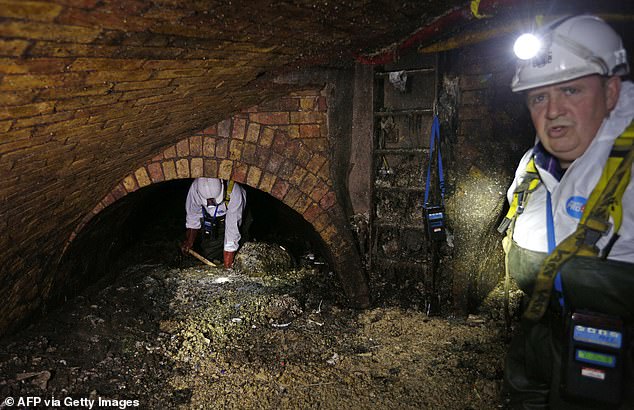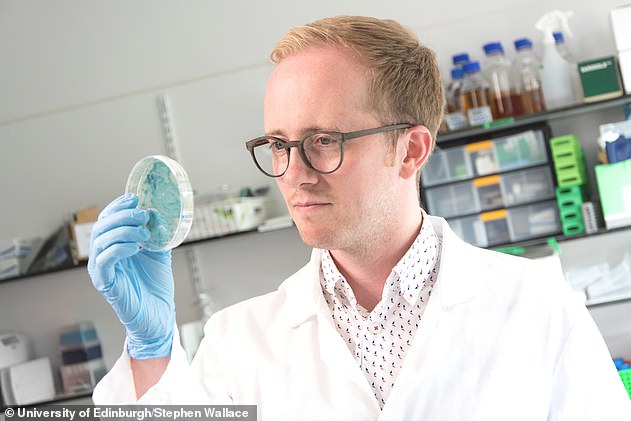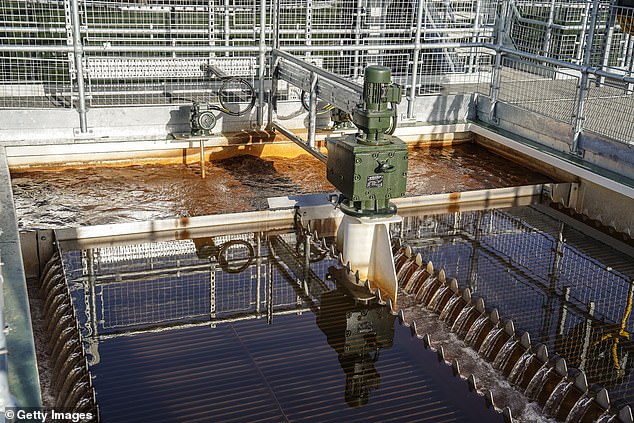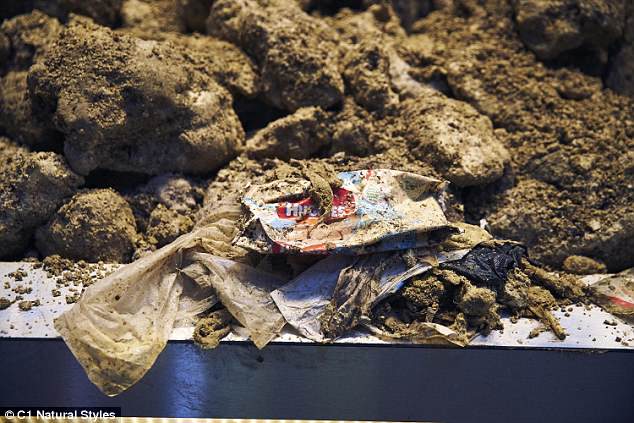Eau de fatberg? Scientists collect smelly clumps of wet wipes, used condoms and grease from sewers and turn them into PERFUME
They may be the smelliest things you can imagine.
But scientists say stinky fatbergs could be the basis of some beautiful perfumes.
Fatbergs are huge blobs of wet wipes, used condoms, plastic bags and sanitary products, all held together by a congealed mass of fat and grease.
Now researchers from the University of Edinburgh have found a way to turn these sewage nightmares into a fragrant oil with the scent of pine needles.
Pieces of the fatberg are fed to specially developed bacteria that are genetically programmed to eat sewage waste.
Over time, these bacteria break down the fatberg into a valuable chemical used in the perfume industry.
In the future, these types of bacteria could even be released into sewage treatment plants to break down fatbergs and make the sewers smell better than ever.
Professor Stephen Wallace, lead researcher on the project, told MailOnline: ‘Imagine these new bacteria living in sewers breaking down fatbergs and turning them into sweet-smelling chemicals.’
Fatbergs are solid lumps that form when waste such as wet wipes, condoms, plastic bags and sanitary products mix with oils and fats. However, scientists say they could form the basis for some wonderful perfumes

Researchers have found a way to turn fatbergs into perfume by feeding them bacteria genetically engineered to eat fats and produce nice-smelling chemicals (file photo)
Fatbergs form when solid waste flushed down the toilet combines with oils such as shortening or conditioner to create a solid mass of dense material.
At their largest, they can weigh several tons and cause serious problems for the sewage system, as blockages lead to clogged drains and even flooding.
One of the largest ever measured was the so-called Whitechapel Fatberg, which weighed 130 tons and was as long as London Bridge.
Thames Water says it spends £18 million a year clearing these monstrosities from the sewers, with the removal of the Whitechapel Fatberg alone costing £220,000.
But in Professor Wallace’s bioengineering lab, researchers are working hard to find a way to turn this waste into treasure.
He said: ‘Fatbergs are currently a major problem for our sewage systems in Britain and when removed they are currently incinerated or sent to landfill.
“They’re also made of fats, and we know that bacteria like fats, so we thought maybe we could reprogram bacteria to eat the fats and convert them into something useful?”
Professor Wallace buys pieces of fatberg from a company that specializes in removing them from the pipes under cities.

At their largest point, fatbergs can weigh more than 100 tons and cause blockages that lead to clogged drains and flooding. Thames Water spends around £18 million a year removing these blockages from the sewer system

Professor Stephen Wallace (pictured) uses bacteria to convert fatbergs into a chemical called pinene, which is used in the cosmetics industry to create pine-scented perfumes
These chunks are then steamed to kill any harmful pathogens before being fed to a colony of genetically engineered bacteria.
Professor Wallace says: ‘We are using a new area of science called ‘engineering biology’, where we can take DNA from all of nature, in this case from plants, and insert it into bacteria to program biological systems to do new things.’
In this case, that genetic code allows them to feed on sewage waste and produce a chemical called pinene, which is normally found in pine needles.
This chemical is extremely valuable in the cosmetic industry and is used in everything from perfumes to shower gels.
Professor Wallace says his team cannot yet produce enough of the scent to make it commercially viable.
However, he adds that the laboratory is ‘currently working with UK industrial partners’ to see if this could be a possibility.
Normally, when fatbergs are removed from sewers, they are thrown into a landfill or burned, which leaches chemicals into the ground or creates greenhouse gases.
But bioengineering innovations like this offer more opportunities to turn this waste into something useful.

Professor Wallace says bacteria can even be used in waste treatment plants to clean up grease and make sewage smell sweet (stock image)
Similar techniques have been used to convert fatbergs into biofuels such as methane by allowing bacteria to feed on the fats and oils within them.
However, Professor Wallace says his innovations could one day stop the formation of fatbergs.
Although he says the bacteria could not end up in the sewer due to “important ethical concerns” about releasing new species, they could be used in sewage treatment.
Bacteria in the water can eat the fats and oils that bind the fatbergs together before they reach the point where specialized cleanup crews are needed.
And as an added bonus, bacteria engineered to produce pinene are said to make sewage smell fantastic.
Professor Wallace concludes: ‘You can imagine sewage treatment plants using this new technology to reduce the associated odors.
‘This really has the potential to be a transformative solution to the climate crisis and create a more sustainable future for generations to come.’

